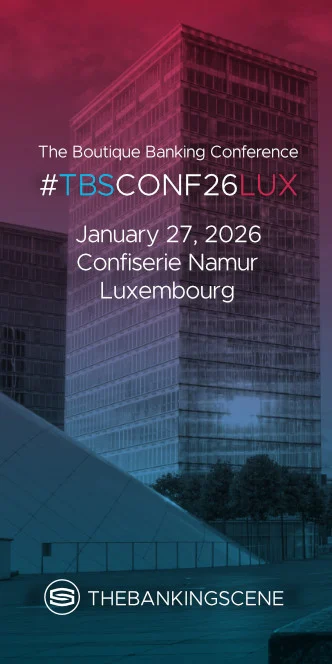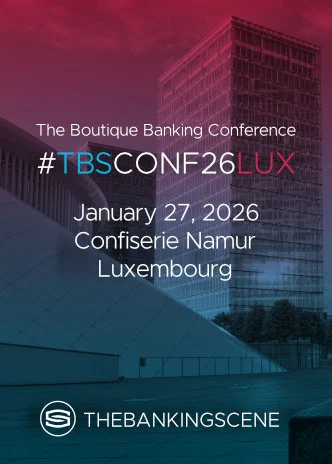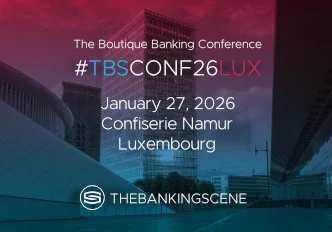
Insights & Opinions
The Open Banking Interviews: duo interview with Tjeerd Tesselaar and Nico Strauss at Rabobank
Fri, 22 Nov 2019

For our 15th Open Banking Interview, I had a pleasure to meet up again with Tjeerd Tesselaar. I first met Tjeerd at a Product Management training several years ago. At the time that I was figuring out how to be a better Product Manager, he was already working on commercialising APIs. Today Tjeerd is Area Lead Product Development & Partner Management at Rabobank.
Nico Strauss joined in as well, he is Tribe Lead B2B Services. His background at Worldpay sure gave the interview an additional dimension.
Part XV of The Open Banking Interviews (see part XIV, with Marc Lauwers, CEO and Inge Ampe, CCO at Argenta).

The deadline for PSD2 is now behind us. It was a long process, one where the industry also experienced a process of a changing mindset, from a lot of reluctance to a quest for opportunities. What was that experience given Rabobank’s ambition regarding API’s?
Tjeerd: “You are right, it requires a new way of thinking. We needed to understand what it means for Rabobank to be part of a connected value chain and what kind of role or roles we want to play. I do believe that in the early beginning, there might have been a bit of reluctance there — but this changed into looking at opportunities and what PSD2 and Open Banking can mean for us as a bank and for our customers.”
I know Rabobank is working quite some time already with APIs in a commercial context. Did this bring you ahead of the curve compared to other banks?
Tjeerd: “It certainly helped. We’ve gained a lot of experience in the past few years: how the market develops, the business opportunities that arise, what we require from the IT-stack, the ability to support API products, how you go to market and what it means to partner.
Looking at the results, we can be very proud: we were the first major bank in the Netherlands to have opened up our developer portal with a personal sandbox environment. We were also the first major bank to open up one of the most important API products in production, being the account information service (AIS). And Peaks, a daughter company, has obtained the first PSD2 license in the Netherlands.
Also, we offer an award-winning digital identity services proposition called Rabo eBusiness, for which we partnered with Signicat. By using these services, B2B customers can increase customer satisfaction and run their online business more efficiently. Think of optimizing boarding processes and easily allow documents to be signed digitally.
And lastly, within SurePay, an internal corporate start-up, we developed the IBAN-Name check. This account verification service is now part of all the banking apps in the Netherlands and even expanding abroad. With more than 1 billion checks performed Rabobank has helped to prevent fraud and misdirected payments significantly. To sum up, we have started many initiatives because we want to be there where our customers need and expect us. But we’re not done, we still have a lot to learn.”
Nico: “To finish that one off: the first results we’ve seen are already good. We’re first to market in a lot of areas in PSD2, first TPP, the first sandbox, first live API’s, … and we see already customers lock into that success.
Additionally, we organized ourselves for future success. The tribe that we run together has put together sales, support, product management, marketing, … This enables us to not only move faster on what we’ve already achieved but start to accelerate quicker and quicker as well.
It is more than just setting the tech stack live. The internal culture, the way you organize and the strategy that you rollout with and the go-to-market is an important driver. You need to go to market to more personas than you did in the past — it’s not only the end customer but also the ecosystem around that customer, and the developer himself as a new persona.”
Rabobank pays a lot of attention to ecology and agriculture. Do you see this reflected in the Open Banking Strategy?
Tjeerd: “Open Banking and Open Banking strategy have an impact on everything we do, so also on the Food and Agri sectors we are in. We’ll definitely pursue that in the near future.
However, from a priority perspective, we are working on topics where the market need is most prevalent. On the one hand in the Netherlands, that’s PSD2, while on the other hand there are opportunities beyond PSD2 that we want to grasp.”
Nico: “Over a slightly longer time horizon than maybe right now, you may see very much differentiated value coming from Rabobank. By that, I mean that everyone in the sector has been working on a big compliance hurdle to obtaining the regulated mandate with API’s, and of course that has been our major focus as well as that is our license to operate.
Additional functionalities such as a real-time AIS API and others of that nature are then logical short term follow-ups. We are already seeing first use cases specifically focused on AgTech — and agriculture API thoughts are coming down the pipeline, which is of course where we differentiate ourselves from most other banks.
Further down the road, I think it is exactly in that area where a lot of the additional value will be unlocked. Right now, everyone is still about on the same level, and in the coming years it’s coming down to personalizing the open banking strategy to your own identity as a bank. We need to excel in what we’re famous for.”
I see PSD2 as a starting point of a whole new journey, the one of Open Banking, which goes far beyond PSD2 and payments. I call that ‘the journey to everywhere banking’. How do you look at this? Will this make banks more relevant again?
Tjeerd: “I definitely agree that we’re going beyond payments.
We’re at the beginning — it started with PSD2, but it will grow more and more. With SurePay and Rabo eBusiness for instance, we doing exactly that. We are already investing beyond payments, so I totally agree that there’s a lot of potential there.
With Aegon, where we have optimized the online identification process, we contributed to the reduction of client onboarding time from 4 days waiting on a letter with access code to online registration in just 30 seconds. That’s a very nice example of where we want to go and we’ll be doing more of that.”
Nico: “Indeed, it’s not just everywhere banking. Don’t pin me down on this, but: Bill Gates quoted “everyone needs banking, but nobody needs banks”. PSD2 and the new landscape enables us to become not just a bank, but also a trust provider, which is exactly why banks exist: you need someone to stash your money.
The Aegon case that Tjeerd mentioned is only the tiniest first step.
The thought experiment here is: when PSD started 2007, if you would have told a bank that a payment company like Worldpay would be bought for 43 billion dollars by FIS, or that Adyen with 800 people would have a higher market cap then Deutsche Bank, they would have laughed in your face.
It’s worthwhile to do the same thought experiment of how the consolidation of payments and identity will look in 2029. We’re already seeing this now. “Everywhere Banking” is maybe not ambitious enough, we’ll have to wait and see. In the meantime, we’re organizing to be able to take advantage of that, and we actually did already benefit from this.”
You’re right, the technology of today creates endless opportunities for the future. Do you think this technology is the biggest challenge in the context of Open Banking, or is it the change that is required within the organization to start thinking differently about the way we will be banking in the future?
Tjeerd: “It’s not one or the other. It’s both. We need to get the tech right, but we also need to get the mindset right. In a company like Rabobank, we continuously need to spread the word.”
That is an element I heard in most interviews: the next phase in Open Banking will be on learning, both internally and externally.
Nico: “Rabobank as a bank has already learned quite a bit. In my previous role at Worldpay I used to work with most of the European banks as they were suppliers to us, and what’s interesting about Rabobank is that when it comes to the culture aspect, the tone starts at the top.
4 years ago we get a new CEO without a banking history as well as a completely new managing board, and that started to roll down. I don’t have a banking history, the head of design doesn’t have a banking history — he worked at Microsoft, Amazon, and Catawiki, and we’re bringing in the new culture as well.
From a tech perspective, it’s no secret that banks in many of the economies in which they operate are the biggest tech companies that exist because they invest a serious amount of money in their tech, but you’re still not going to be able to do everything everywhere. Which is why we partner more and more as well.”
Some banks warn for too much data sharing with Bigtech like Google, Facebook, Amazon, and Alibaba. Isn’t PSD2 rather an opportunity to better follow up on which data they are gathering? After all, APIs provide better reporting possibilities than the web scraping and reverse engineering that already exists some time?
Nico: “A part of the answer is the regulator. In PSD2, a part of the value chain is being unbundled as part of the EU level rules that were written on PSD2. We have to open up. And of course, that needs to be completely under customer control.
I think what makes us a little bit different from the other banks with regards to the do’s and don'ts with data, is that we have a more distinctive approach. We are extremely mindful of the consumer privacy aspects in this, and there you have PSD2 as an advantage because it allows you to get the exemption on supporting screen scraping where you don’t have that much control of who is gathering which data.
PSD2 is trying to solve what is already been in the market for 10 years. What’s interesting to see is that big tech is now also realizing that doing everything with data is not the long term right way to go. You see Apple at the consumer electronics show this year saying with a big billboard “what happens on your iPhone stays on your iPhone”.
More and more tech companies are standing in front of government bodies retroactively explaining what they’re doing. On a more macro level, you see a bit of a shifting consciousness with regards to the societal aspects of this as well. Of course, as a bank, we’re a long term, so we’re not jumping on that wagon just yet. We’re paying a lot of attention to what we’re doing in that space. Of the flip side, we need to open up, that is the law.”
In the Open Banking Interviews, we also talked to Ali Niknam, CEO of challenger bank Bunq. He asked for more openness from the banking industry. On the other hand, we also talked to for example Karel Van Eetvelt, CEO of the Belgian Banking Federation, who rather asked for more openness from other industries to make innovation happen. How do you look at that?
Nico: “That is already happening. It was in the press earlier this month, and we had a colleague from Rabobank in ‘Nieuwsuur’ talking about the research the EU is currently doing on the NFC architecture of Apple. I think the regulator is already looking at other industries outside of banking, but fundamentally speaking, we need to react to the market.
When you’re talking high regulated industries like banking and payments, the old wisdom is: the biggest innovator is the regulator. Therefore we will organize for an open future, but we’re ultimately not the one that says what the rules are.”
In terms of next-level Open Banking: what do you see as key trends for 2020 and beyond for consumers? And what can we expect from Rabobank in that respect?
Tjeerd: “I think 2020 is really the year of usage of PSD2 and the innovation that will come from that. Looking at the UK market which is 1 year ahead, you now see all these kinds of innovations actually being used by customers. So at least in the UK market, you see what the reactions will be.
In the Netherlands, it will be in 2020 that you’ll see banking parties and non-banking parties taking advantage of PSD2, creating new service propositions and offering that to customers. Those services will be more personal, easy to use and help them be more efficient in their daily digital lives. In the end customers will have more freedom of choice.”
Nico: “Ultimately, in addition to that, we will also experience more control. The data-sharing economy is starting to slowly become a reality. We’re already looking at implementing control measures that place it back into the hands of the consumer; because ultimately it is their data. Apart from much more frictionless journeys, the real innovation is not going to be in the PIS domain within PSD2 but more in the AIS domain, allowing new customer journeys to formulate and radically reduce friction. I think personally it would be really interesting if we can play a role in bringing that control back to the consumer as well.”
This story is part of a series of interviews with executives of the financial services industry.
The complete list of Open Banking Interviews can be found here.
Make sure you follow The Banking Scene on LinkedIn, and subscribe to our newsletter for the latest news.



